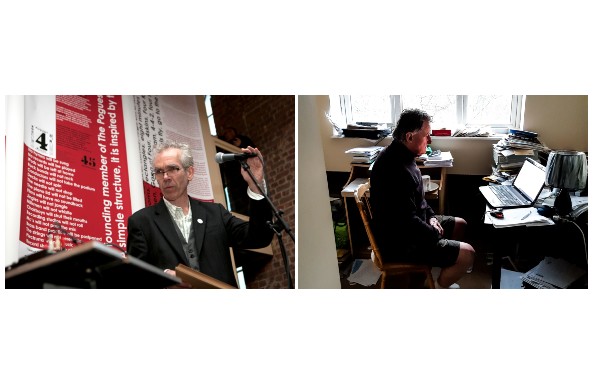Jeff Young and Tony Wailey: Life Writing, 26 May

The School of Arts have teamed up with WoWFest2021, with students from across the School previewing events from this festival of radical writing, taking place throughout May.
Joe Jackson (year 2, English) previews Jeff Young and Tony Wailey: Life Writing Panel Discussion, Wednesday 26 May, 6 pm. Tickets £8/£4 concessions.
Life writing and the memoir are currently experiencing a bit of a moment. Once, the genre was the domain of people who’d accomplished something noteworthy, people who’d had an extremely unusual experience and writers brilliant enough to transform the mundane into a snapshot of a broader historical moment. These included Anne Frank and Mohammed Ali, the poor sod that had his arm trapped under that boulder for 127 hours and Haruki Murakami’s meditation on daily running. Somewhere along the way, the market for life writing exploded. Now it is flooded by wave after wave of tepid, largely self-indulgent memoirs from two-bit celebrities. With things as they are, currently anyone – and I mean literally anyone – can release a memoir. We’ve even had prose, supposedly, from Paris Hilton’s dog Tinkerbell Hilton, in a chapter of Confessions of an Heiress titled “Tinkerbell Hilton’s Doggy Diary: A Brief Excerpt”.
While it has left the market oversaturated with a lot of very average books, the explosion of life writing has had some more encouraging outcomes too. These titles have been an escape over lockdown, as we’ve been trapped inside, unable to experience the minutiae that a lot of memoirs record. The crazy amount of media we’re consuming – Ofcom found that on average 40% of our day is spent watching TV and online streaming services – is another reason to pick up a memoir. In a post-Trump world, where facts are relative and ‘fake news’ is everywhere, being locked inside and spoon-fed so much of this content has meant that more than ever we’re struggling for true narratives. Memoirs and life writing provide an answer to this fake news. They capture the lived experience of the writer in a way that can’t be bent or transformed; they’re not malleable to clever statistics in the way other media are.
Instead of dressing up facts, life writing bares all. It’s baked into the form. As with life painting, so with life writing: we can expect nakedness. The writer can tell the unfiltered, naked truth, capturing all the shades of grey, all the ambiguities that come with real life. The memoir gives a voice to those who might not be heard otherwise: Chanel Miller used her story to recount the trauma of sexual assault and the failings of the legal system. These are perspectives you won’t find on the nightly news.
That’s what’s important about life writing and why we should have more panels like this one discussing it. As a barely-twenty-year-old student, part of a generation notable for their progressive politics and online activism, hearing stories like Jeff Young’s and Tony Wailey’s excites me. It’s an opportunity to gain wisdom and insight from people who have really lived, even if I have to wade through anecdotes from Tinkerbell Hilton to get there.
Part of WoWFest21: celebrating 21 years of radical writing. Check out the full programme here.